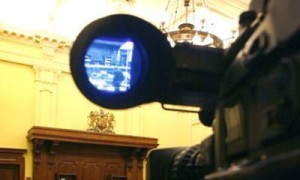Live television broadcasting in courts, for the first time, is one step closer after receiving final approval in the House of Commons this week.
From next month broadcasting will be allowed for criminal and civil cases in the Court of Appeal, where filming will be allowed of the legal arguments and the final judgment.
Courts Minister Helen Grant said: “Justice must be seen to be done, that is why we are introducing limited television broadcasting in courts from next month.
“We are opening up the court process to allow people to see and hear the judges’ decisions in their own words, but we will also ensure that victims and witnesses will not be filmed and will remain protected.”
The Government then intends to extend filming to allow the broadcast of sentencing remarks in the Crown Court. However victims, witnesses, offenders and jurors will continue to be protected, and will not be part of broadcasts.
The proposals will now be debated in the House of Lords prior to coming into effect in October.
Proceedings in the country’s highest court, The Supreme Court, are already streamed live on the internet.
The Crime and Courts Act 2013 contains an order making power that allows the Lord Chancellor, in concurrence with the Lord Chief Justice, to make an order setting out the conditions under which the prohibitions on filming and broadcasting from court will be lifted. The ban on filming and recording in court as contained within section 41 of the Criminal Justice Act 1925 and section 9 of the Contempt of Court Act 198
Cost will be covered by media organisations and it will be for the media organisation to determine which cases are broadcast, subject to necessary judicial checks (including where it would not be in the interests of justice to broadcast footage or would cause undue prejudice to any party).









